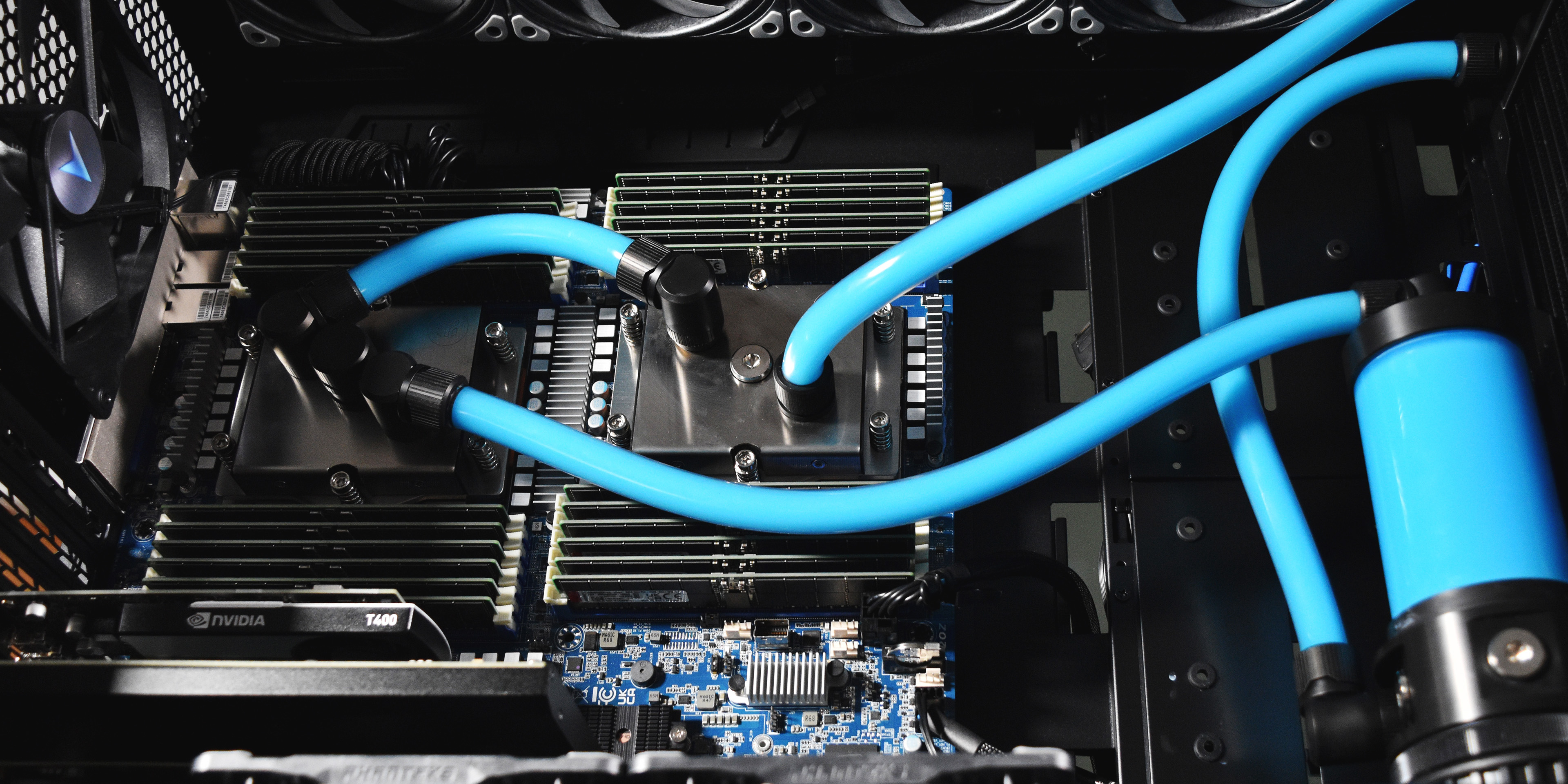
Can you use a workstation CPU For Gaming? Should you?! High-end workstation processors like AMD Threadripper, Intel Xeon, or AMD EPYC are designed for specific use cases, such as content creation, scientific simulations, server applications, and professional workloads that require immense computational power and multitasking capabilities. While they can certainly handle gaming tasks, their primary focus is on heavy-duty computing rather than gaming performance.
Below are some considerations regarding using these processors for gaming, but first, a quick refresher on each of these processors:
AMD Threadripper
Strengths
- Threadripper processors have a high core and thread count, making them suitable for multitasking and parallel processing tasks.
- They excel in content creation applications, such as video editing, 3D rendering, and other creative workloads.
Weaknesses:
- In terms of pure gaming performance, Threadripper processors may not provide a significant advantage over high-end consumer CPUs. Games often rely more on single-core performance, where other processors may shine.
Intel Xeon
Strengths
- Xeon processors are designed for professional workstations and server environments.
- They often come with features like ECC (Error-Correcting Code) memory support for enhanced reliability and stability in critical applications.
Weaknesses
- Similar to Threadripper, Xeon processors may not deliver better gaming performance compared to high-end consumer CPUs. They may lack certain optimizations for gaming workloads.
AMD EPYC
Strengths
- EPYC processors are designed for server environments and data centers, emphasizing scalability, reliability, and performance in multi-threaded applications.
Weaknesses
- Like Threadripper and Xeon, EPYC processors might not offer a significant gaming performance boost compared to high-end consumer CPUs.
Final Considerations – Using a Workstation CPU For Gaming
Cost
- High-end processors like Threadripper, Xeon, and EPYC tend to be more expensive (and in some cases, significantly so) than consumer-focused CPUs, not to mention the additional cost of supported motherboards and ECC RAM. If this machine is purely for gaming, you’ll get more for much less. But, if you already own a professional workstation and want to run a few games too, you can, and doing so would be cheaper than a dedicated gaming PC.
Single-Core Performance
- Games often benefit more from high single-core performance rather than a high number of cores and threads. While workstation CPUs general are maxing out core count, many consumer-grade CPUs provide higher single core frequencies, meaning they’ll provide a better gaming experience overall. That doesn’t mean the workstation CPU won’t run the game, but it does mean it may not do it as well as a processor that’s a fraction of the cost.
Compatibility
- Some gaming applications and software may not be optimized for the architecture of these high-end processors, potentially leading to suboptimal gaming performance. Remember, these CPUs are optimized for a specific type of task…and gaming just isn’t it.
In summary, for the average gamer, investing in a high-end consumer-grade CPU, such as an Intel Core i9 or AMD Ryzen 9, will be more cost-effective and provide the best possible gaming performance. Threadripper, Xeon, and EPYC are best used for specialized workloads where their additional cores and features are better utilized. As mentioned, they CAN game, they’re just not designed for it. So if you already have a pro workstation, feel free to install Call of Duty and you’ll probably still have a good time (especially if you’re running Geforce graphics), but if you’re building a PC that will be dedicated to gaming, a gaming PC is what you want.
VM Staff
Latest posts by VM Staff (see all)
- The Great Memory Shortage - December 10, 2025
- What is an NPU and Why You May Need One in Your Next PC Build - September 5, 2025
- Trading Computers: Building the Best - June 26, 2025
Great explanation! Workstation CPUs like Threadripper, Xeon, and EPYC are amazing for professional tasks, but I agree they aren’t ideal for gaming. For gamers, high single-core performance and cost-efficiency make Ryzen 9 or Core i9 a much better choice. If you already have a workstation, it’s good to know you can still enjoy gaming on it!
This is a really interesting topic! While workstation CPUs like AMD Threadripper or Intel Xeon are obviously designed for professional tasks, it’s good to know that they can still handle gaming. I guess the real question is whether they offer the best value for gamers compared to gaming-specific processors. I’d love to see a deeper comparison of performance and price—sounds like there’s a trade-off between raw power and gaming optimization. Great read, looking forward to more insights on this!